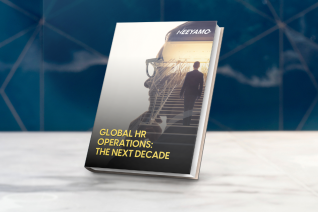Establish your presence globally with Neeyamo as we help you go beyond borders to manage your international payroll services and hire new talent in Brazil.
Overview
Brazil is a country located in the continent of South America, sharing its borders with French Guiana, Suriname, Guyana, Venezuela, Colombia, Peru, Bolivia, Paraguay, Argentina, and Uruguay. The prominent industries in the country include aerospace, motor vehicles, and parts, iron and steel, equipment and machinery, cement and textile.
Do your organization’s expansion plans require you to hire employees in Brazil? Do you lack a physical entity in the country – a key requisite to hire local talent? Neeyamo assists organizations worldwide with onboarding and managing employees in Brazil – processing global payroll, managing local compliance requirements, benefits, and more.
Our Presence
Tools And Instances
Facts And Stats
Capital
Brasilia
Currency
Brazilian Real (BRL)
Official Language
Portuguese
Fiscal Year
1 January - 31 December
Date Format
DD/MM/YYYY
Country Calling Code
+55
Other Languages
English, Spanish, Hunsrik
Time Zone
Brasilia Time (UTC -03:00)
Global Payroll
Overview
Handling global payroll services for a widespread workforce can pose a significant challenge for any organization, and the added complication of compliance can make things worse. If companies spend more time processing payroll, it directly impacts day-to-day operations and their overall productivity.
Over the years, Neeyamo – a global payroll service provider, has observed these complexities and strived to provide global payroll solutions through a single technology platform - Neeyamo Payroll.
Payroll Taxes
Payroll tax is the percentage amount retained from an employee's salary and paid to the government to invest in the general population's welfare. These are statutory in nature and are levied from both the employer and employee. Additional statutory contributions are made by employers towards aiding both short-term and long-term benefits for their employees.
Employee Taxes
Employee Payroll Contributions are as follows:
- Social Security (with a maximum of BRL 713.08 per month) - 7.50% to 14.00%
- Total Employee Cost - 7.50% to 14.00%
The employee income tax bracket is as follows:
| Up to 22,846.76 BRL | 0.00% |
| 22,847.77 to 33,919.80 BRL | 07.50% |
| 33,919.81 to 45,012.62 BRL | 15.00% |
| 45,012.63 to 55,976.16 BRL | 22.50% |
| 55,976.17 BRL and above | 27.50% |
As of May 1, 2023, the individual income tax exemption for monthly income is 2,640 reals.
As of May 8, 2023, there is an exemption on interest on delayed payments and alimony is also exempted from income taxation. Taxable amounts of Christmas bonus, holiday pay, and withholding income tax allowed simplified monthly deduction of 25%
Employer Taxes
- Social Security contributions (INSS) - 20.00% to 22.50%
- Employees Severance Indemnity Fund (FGTS) - 8%
Payroll Cycle
Overview
Undoubtedly, payroll is a critical process for any organization. Pay cycle in Brazil refers to the period for which an organization pays its employees, and this can vary depending on the pay frequency that the organization chooses to adopt.
Frequency
The payroll cycle is either bi-weekly or monthly and is usually paid on the 15th and 30th of each month.
13th Month Cycle
In Brazil, a mandatory 13th-month salary payment is paid to the employees at the end of the year.
Employees who have worked for 12 months are entitled to receive the full payment, while those who have worked for part of the year will receive a payment proportional to the period worked.
The 13-month payment is made in two instalments; one in November, which corresponds to the six months worked up to that date (with no INSS deduction from or withholding taxation due), and the second instalment in December (INSS contribution and withholding tax are applied to this second instalment.)
Global Work
Overview
An Employer of Record (EOR) service provider helps you eliminate the hassle of handling complexities while onboarding a new employee in an international location. They help bridge the gap that otherwise mandates organizations to have a local registered entity and a local bank account prior to making a job offer to an international hire.
An Employer of record service provider acts as a legal employer, facilitates salary payments, and manages other statutory requirements such as health insurance, payroll taxes, and employee benefits, ensuring compliance with local tax laws and regulations.
This allows organizations to focus on collaborating with the employee in Brazil for operational tasks, with the knowledge that they have a cost-effective solution that supports their global payroll & HR requirements as they continue their global expansion.
A company that provides EOR Brazil would be the best fit for companies looking to expand their global workforce. Neeyamo's International payroll services are your go-to solution with our Global Payroll Technology stack, providing both payroll, as well as EOR services under one umbrella.
HR Mandates and Practices
Minimum Wage
Effective on January 1, 2024, Brazil increases the minimum wages.
The new minimum wages are as follows:
- Monthly: Increase from 1,320 BRL to 1,412 BRL, representing a 7% increase
- Daily: Increase from 44 BRL to 47.07 BRL
- Hourly: Increase from 6 BRL to 6.42 BRL
Overtime
If an employee is found to work for more than 8 hrs per day, it can be considered as overtime and is therefore eligible to be paid at the rate of 150% of the regular pay. There is a cap of 2 hours of OT per day
Employees can be exempt from overtime pay if:
- The employee works from their home and not at the employer’s physical location
- If the working hours that have been defined are not compatible with the tasks that they have agreed to perform and are completed within a company’s facilities
- They are an employee in a trust position
Data Retention Policy
Documents related to labor obligations, such as a work-shift register, payment and benefits receipts, should be retained for five years. The five-year period also applies to union documents: collective bargaining agreements.
Some documents may require a 20-year period of retention, such as the Social Security Professional Profile (PPP) and Occupational Health Medical Control Program (PCMSO), both related to health and safety.
And finally, documents regarding severance fund (FGTS) payments must be kept by the employer for 30 years, according to the law
Hiring and Onboarding Requirements
Hiring
Discriminatory practices are prohibited by law. In this sense, discrimination is prohibited in any circumstance. On the other hand, legislation protects special groups of employees not by specifically legislating a preference in hiring those groups, but by promoting affirmative action to guarantee those workers access to the labor market. Law No. 8,213/1991 provides that every company with at least 100 employees is obliged to hire disabled employees or those submitted to professional rehabilitation, as follows:
| Number of employees |
Minimum % of disabled or rehabilitated employees |
| 100 to 200 | 2% |
| 201 to 500 | 3% |
| 501 to 1,000 | 4% |
| Over 1,000 | 5% |
Employers must also observe the apprenticeship quota. The Labour Code establishes that companies of any nature are obliged to employ and grant professional and technical training to a number of apprentices (aged between 14 and 24 years old), equivalent to between 5 and 15 percent of the existing workforce in each premise, whose activities require professional training.
Onboarding
Documents required for the New Joiner:
- Information regarding all the addresses where employees will render them
- an authorized copy of the passport;
- proof of education and compatible professional experience (reference letters, academic transcripts, CV, etc)
- All through eSocial electronic environment.
- The list of Personal data contains (name, gender, marital status, scholarship level, date of birth, city, and state of birth, nationality, full address, personal e-mail, and cell phone)
- Personal IDs:
- RG(carteira de identidade)
- CPF( Cadastro de Pessoas Físicas) or Natural Persons Register
- PIS(Programa de Integração Social) or Social Integration program
- Labor Card ID
- Election Card ID
- Military Card ID - if man
- Foreigner ID
- Personal data of father and mother (name and IDs),
- Dependents data for Income tax deduction purpose (name and IDs);
Optional documents: curriculum vitae.
The new employee is fulfilled in the payroll system and an automatic file is wired to eSocial environment.
Probation
In Brazil, it is required that the work permit is provided by the employer much in advance. If the hire comes to the country with dependencies, then the corresponding residency permit needs to be applied for them.
The trial period, also called the “probation period”, may be established for a period up to 90 days and may be renewed once if the limit of 90 days is observed, e.g., 45 days renewable for 45 days, or 30 days renewable for 60 days.
Leave
Public Holidays
Brazil has a total of about 13 national holidays.
- Jan 1: New Year's Day
- Apr 7: Good Friday
- Apr 21: Tiradentes Day
- May 1: Labour Day
- Sep 7: Independence Day
- Oct 12: Our Lady of Aparecida
- Nov 2: All Souls' Day
- Nov 15: Republic Day
- Dec 25: Christmas Day
Other additional holidays may apply depending on the region from which the employee hails.
Annual Leave
Employees are entitled to up to 30 days of paid vacation annually, but only after they have completed 12 months of work for the employer. The annual leave must be taken within 12 months after it accrues. In order to make use of this, employees must ensure they do not have more than 5 unjustified absences in a year. Otherwise, the vacation days are decreased as follows:
- 30 calendar days when the employee was absent for no more than 5 days;
- 24 calendar days when the employee was absent between 6 and 14 days;
- 18 calendar days when the employee was absent between 15 and 23 days;
- 12 calendar days when the employee was absent between 24 and 32 days.
Vacations may be taken in up to 3 periods, one of which cannot be less than 14 calendar days, and the others cannot be less than 5 calendar days each. Employees shall not start vacations in the period of 2 days preceding a holiday or paid weekly rest days.
Sick Leave
Employees absent from work because of a non-work-related injury or illness are entitled to be paid their regular salary by their employer for the first 15 days' absence. After the end of this 15-day, sick leave is paid by Social Security.
Medical Appointment Leave
All employees are entitled to leave of one day per year to attend medical appointments with their children until the children reach six years of age. In addition, male employees are entitled to up to two days per year to accompany their wives to medical appointments during the wife’s pregnancy.
Maternity Leave
Women are entitled to 91 days of maternity leave paid at 100% of the regular pay rate. To be eligible, the woman has to give at least 7 days’ notice to their employer when the leave is intended to be taken and must be able to provide a medical certificate.
If the employer is enrolled in the government scheme (Empresa Cidada), maternity leave can be extended to a total of 180 days.
Paternity Leave
Fathers are entitled to 5 days of paid paternity leave.
Other Leave
- Blood donation Leave: Blood donation for one day within a 12-month period.
- Elections Leave: Election day of work (involuntary situation) for one day within a 12-month period.
- An employee can avail 3 days of leave on account of his/her marriage.
- In the case of bereavement, i.e., death of a parent, child, or spouse, employees can avail 2 days of leave.
Termination
Notice Period
Termination of employment in Brazil requires a notice period of 30 days during the first year of employment. After the first year, the notice period will be increased by three days per year, up to a limit of 90 days.
Severance Pay
In Brazil, severance pay is mandatory, but the amount differs based on the type of termination, i.e. in case of resignation, termination by mutual agreement, without cause, and with the cause in indefinite term/fixed-term agreements. Employment can be terminated without cause at any time, provided the notice period is respected (or paid in lieu) and severance is paid. In addition, some categories of employees enjoy additional protection against dismissal. Termination must be written, signed, and dated.
Upon termination without cause, employees are entitled to receive accrued benefits. Those consist of their salary for the unpaid time worked, unused and accrued vacation and vacation bonus, the appropriate portion of the 13th-month salary, FGTS, and an additional 40% on the balance of their FGTS fund.
Visa
Overview
A person who desires to work in Brazil must either have a Brazilian residency or a work visa.
Employers need to ensure that all necessary documents of the employee with regard to their identity confirmation are submitted. For further verification, those documents are then sent to the Ministry of Foreign Affairs. This also tells the Brazilian embassy to initiate that particular employee’s work visa.
Based on the condition of the work permit and residence helps finalize if an employee can also bring their family members or not to Brazil.
Types of Visa
Under work visa, the following categories are included:
- Permanent work Visa: This type of Visa is applicable to employees who are seeking a permanent stay in Brazil. It is referred usually to scientists, investors, and professional researchers with more than $200,000 invested per company or $50,000 invested per person. Employees of VITEM-V Visa can apply for this Visa after two years.
- VITEM-V Visa: This categorization is usually for temporary purposes and is issued to professionals who land over in Brazil for a certain agreement from a company. The Ministry of Labour and Employment must approve the employees who fall under this category.
- VITEM-II Visa: This type of Visa is given to employees who travel to Brazil for certain business purposes. It is valid for up to 10 years and a stay of 90 days per year is allowed for the same.
Employee Background Checks
Legal and Background Checks
- There is no law specifically that prohibits the employer from conducting a background check on its respective hires.
- There are certain rules in place, like Law 9.029/95 that prohibits discriminatory behaviour in the process of employment against race, colour, gender, age, etc.
- The Federal Constitution grants protection of the personal information of an individual in a broad sense and so in order to take the hiring decision, the employer can make use of the public information that is available about the individual.
The option is getting in contact to last former employers in order to understand future employee behavior. It needs to be signed by future candidates with the authorization/ consent on record to do the investigation. But then the risk is on the employer to receive fines from the Brazilian government for job selection based on discrimination.
Last updated on January 19, 2024
If you have any queries or suggestions, reach out to us at irene.jones@neeyamo.com
Vous avez des questions ? Contactez - nous
Entrez en contact avec l'un de nos experts et faites une démonstration rapide de nos services








